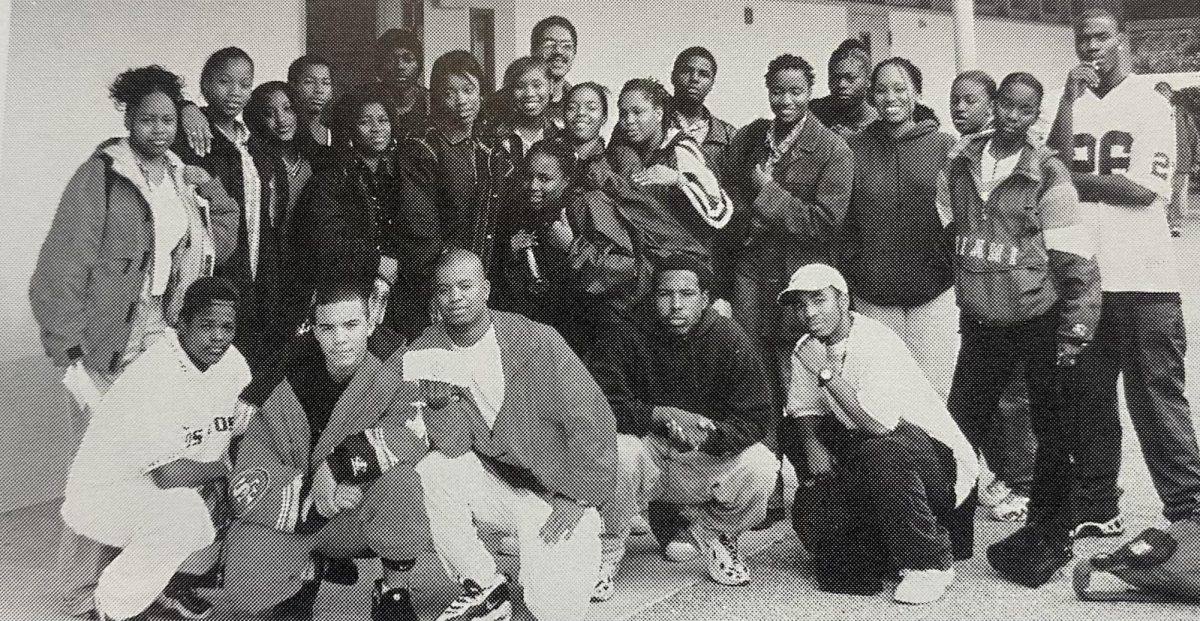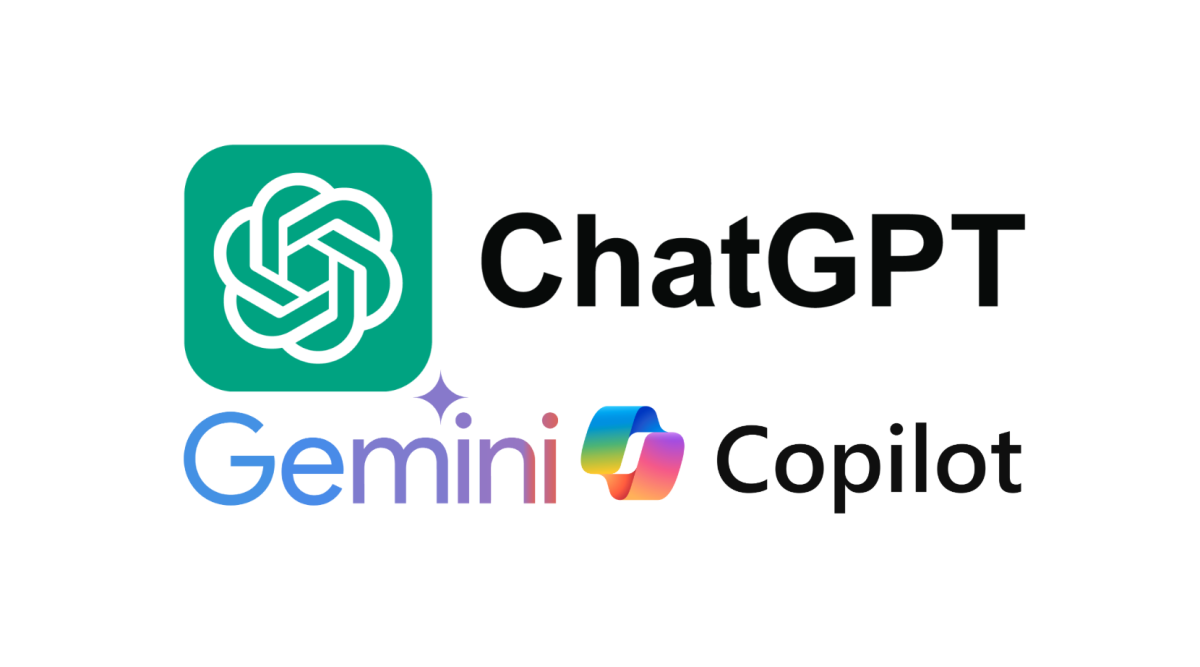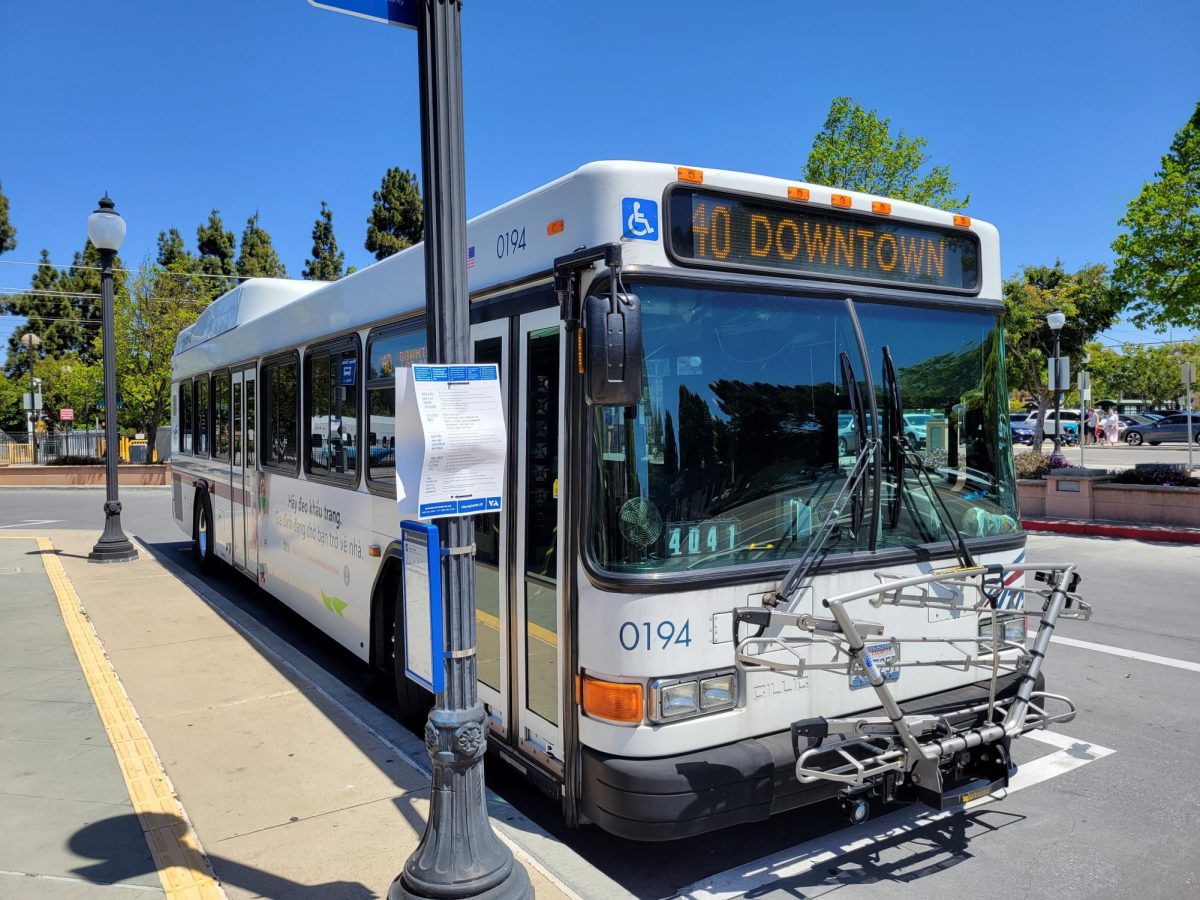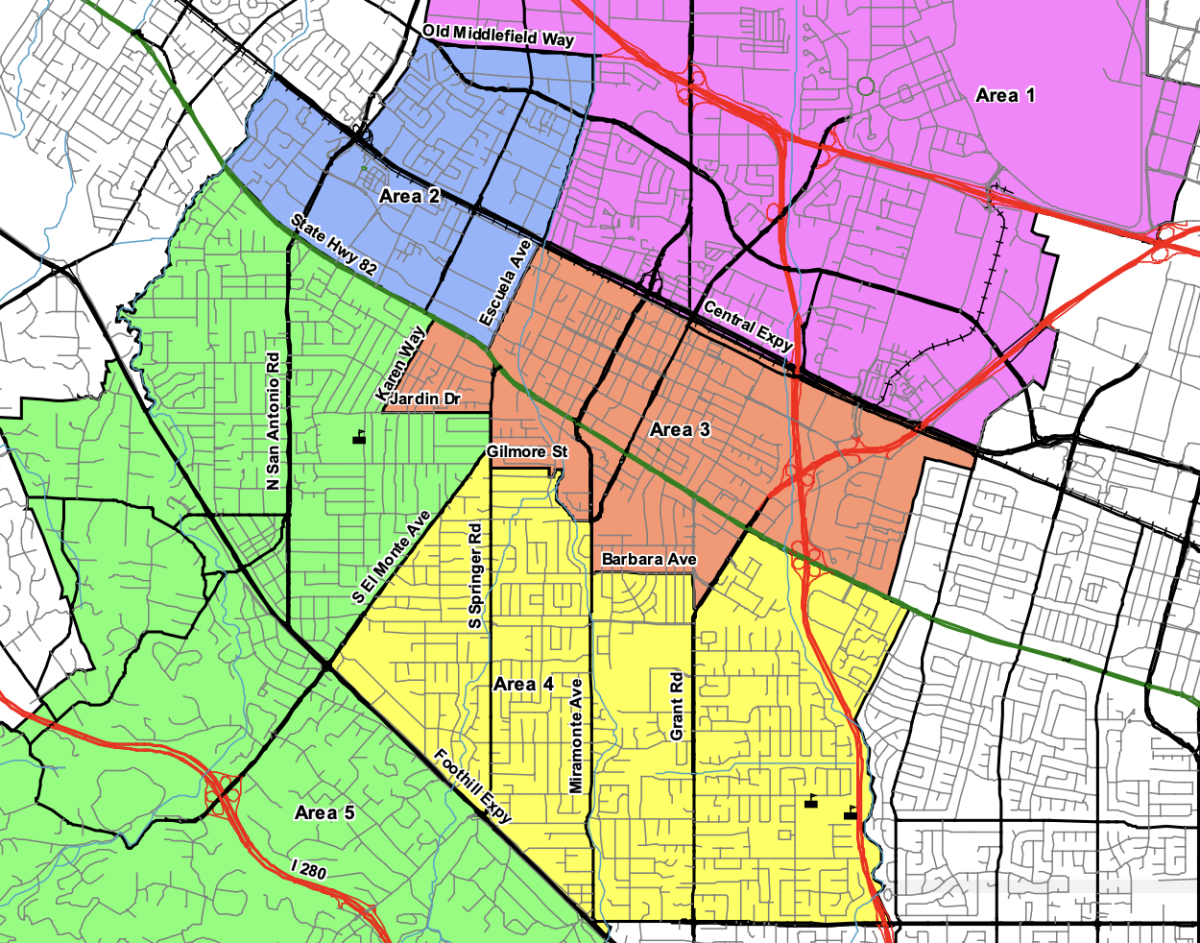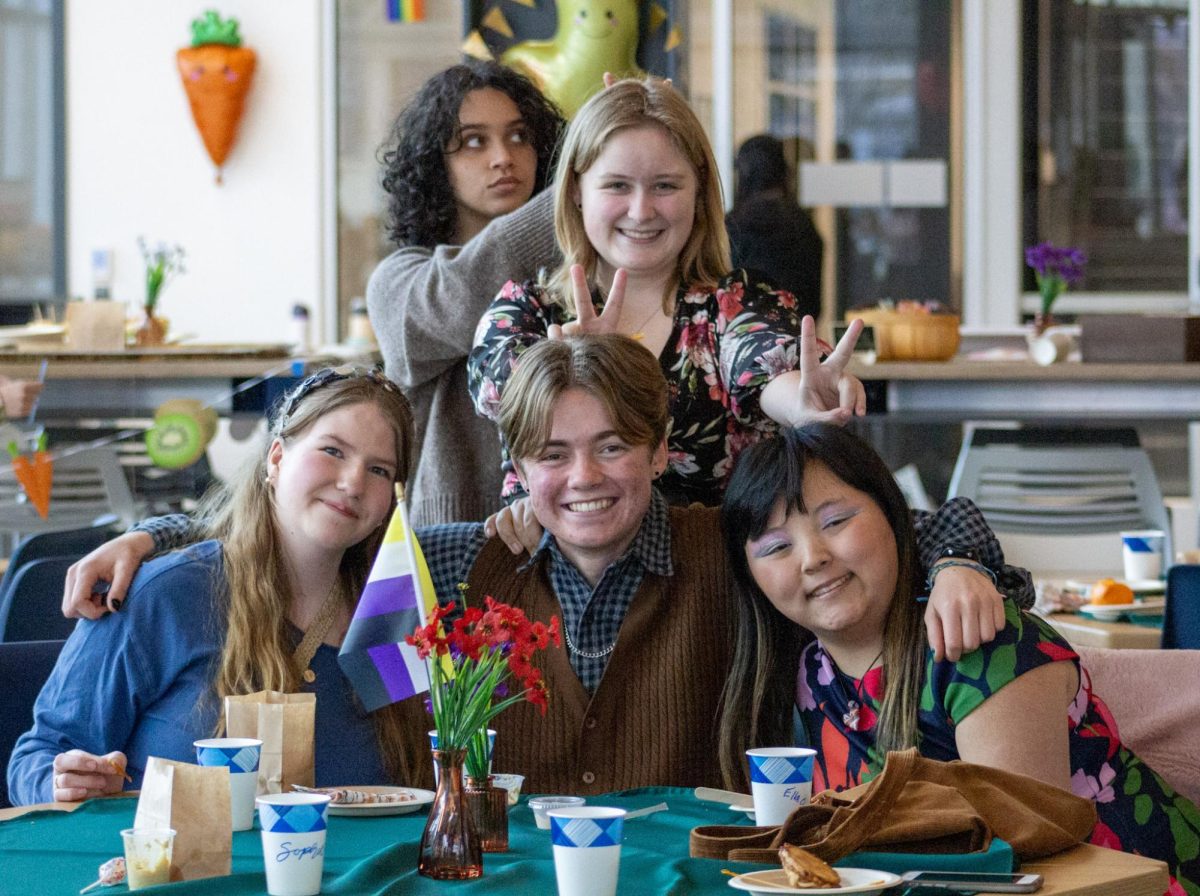From South Africa and Haiti to San Francisco and the Day Worker’s Center, students at school are integral parts of a variety of diverse communities. Whether they are global or local, some connections have been around for quite some time while others are just being forged, encouraging this communal development as the boundaries of what students call home expand. Every year, as new clubs are founded and new trips are planned, the high school serves as a testament for the ceaseless possibilities students have to explore new and pre-existing communities.
Vecinos
Known for its involvement in the Spanish-speaking community of Mountain View, the Vecinos club provides aid to those at the Silicon Valley Day Worker Center. Students in the club make visits every other week to the Day Worker Center to help the impoverished and jobless through activities ranging from crafts to learning English.
The club, started by seniors Jacqueline Liu and Catherine Hua, aims to provide support for the workers. Current presidents Jacqueline and senior Michael Johnson believe it is this net of support that makes each visit to the center meaningful.
“The people at the center feel like we care, and I think that’s important to them,” Michael said. “I think that’s part of what the club is about: giving them support so they know that if they need it, there’s always a support system for them.”
In conjunction with helping workers by providing moral support, the Vecinos club has developed a mutual learning relationship with the people at the Day Workers Center. Students help workers learn basic English while communicating in Spanish. Through this, both students and day workers in the center benefit.
The club also has opened students’ eyes to different socioeconomic conditions. Although the high school is diverse in its student body, volunteering at the Day Worker Center has allowed members to understand these different economic situations and social dynamics more directly.
“One lady told me she rides the train every day from San Jose to here just because this is the only center in California that does this kind of work,” Jacqueline said. “And no other place is like it. It’s so sad but it’s so different from what we have here [at the school].”
Members of the club say that most people at the center are immigrants from Latin American countries who have struggled through extreme hardship and have made life-altering decisions such as leaving family to pursue higher paying jobs in the United States. Many people at the Day Worker’s Center came to America with little to no money. Their burdens entail more than just paying bills; they have an obligation to provide for family abroad.
“[Being in the club] helps you be less judgemental when you meet someone,” Michael said. “At the Day Workers Center, when you talk to someone, you understand all the hard work they have to go through.”
Recently, members of the club made calls to Spanish speakers to warn them about food recalls and potential dangers.Club members were concerned that if some of the people from the center spoke little or no English, they would not know about these recalls or problems, or be able to find the information in Spanish.
“It’s the type of things we take for granted,” Michael said.
Village Harvest
Do you have some extra fruit such as apples or oranges? A local non-profit organization known as Village Harvest would be more than glad to take them. The group organizes volunteers in the San Francisco Bay Area to harvest fruit for the homeless and nutrition-deprived. Despite its small size, the organization still manages to make a profound difference for thousands through their various events and activities.
The Los Altos charter is a link in this chain that allows students to take an active role in the fight against malnutrition. Student members are recruited to pick fruit from over-producing households or orchards in the Los Altos area, turning an excess commodity into a possibly life-saving means of nourishment.
“It’s something I thought was interesting,” club vice president junior Andrew Bray said. “My family grows excess produce in our backyard, and I thought that there must be someway that we could use that, but on a wider scale to give back.”
Last year the club went on four trips to harvest, with the club contribution going towards the 2011 total of 202,914 pounds of fruit that was donated. To put that in perspective, a large apple pie usually uses about three pounds of apples. Village Harvest donated enough fruit to make more than 6,500 pies, an impressive amount.
The Village Harvest Charter is still one of the smaller volunteering clubs at Los Altos, but its leaders would like to see it expanded in the years to come.
“We’ll see where it goes… We’ll see where time takes us,” Andrew said.
The organization also raises awareness on proper fruit tree care, and encourages preservation to keep excess fruit from spoiling.
AVID
AVID (Advancement Via Individual Determination) is intended to provide the opportunity for students to make successful entrances into four year colleges. It focuses on cultural awareness, college/career counseling, tutoring, mentoring and leadership. Students work with tutors and in groups to prepare themselves for making a change in society.
AVID is intended to give opportunity to those who are serious about achieving academic success, but face barriers while trying a do so.
“Students focus on developing college readiness, which ranges from developing academic skills to visiting and researching colleges to planning a budget for college,” AVID coordinator Joanne Miyahara said. “Students often learn about different opportunities through AVID, and have the benefit of working with community mentors during their junior and senior years.”
In addition to helping students succeed academically, AVID also places an emphasis on community involvement. In the past years, the club worked with Almond to develop a tutoring program, although it has been discontinued.
“Almond tutoring was definitely one of the best experiences I had in my life,” senior Bhavdeep Singh said. “I really loved how they were willing to come early to school and receive help because it really showed me that they cared about learning.”
Also, high school AVID students often work with students from middle schools to talk about the expectations in high school.
“As a program, we partner with a non-profit, ALearn, which helps provide a summer program for incoming freshmen,” Miyahara said. “AVID helps support ALearn’s fundraising and recruitment efforts … primarily, AVID students are active in the community, and AVID helps support this by having leadership development and leadership projects within the AVID curriculum.”
AVID students also participates in the annual Zimbabwe Run and Fair, a local mile walk for people of all ages in order to raise money and awareness.
“It is to help support the Zimbabwe Foundation, which helps to build and maintain an orphanage in Zimbabwe,” history teacher Stephanie Downey said. “The AVID Students ran cultural booths that help educate kids in the United States about Zimbabwe.”
The Run and Fair incorporates traditional Zimbabwean practices to spread awareness of cultural gifts. In order to spread this awareness, the fair hosts a variety of games and traditional Zimbabwean music. In addition to helping this foundation, AVID students get experience in leadership and cultural awareness through this event. This reflects many of the ideals that the AVID program intends to impart to its students. Through AVID, students are offered a medium through which they can interact with surrounding communities while still receiving help in preparing for college and the life beyond it.
Red Cross
Started in 1881 by a single wartime nurse, Clara Barton, the American National Red Cross is one of the most well-known organizations in the world. It focuses on alleviating suffering across the globe and in local communities. Although the Red Cross began by simply providing first aid to injured soldiers, it has now expanded to serve in the areas of disaster relief, military family support, blood donations, health and safety services and international services.
Although Los Altos High School’s Red Cross club may not have many members, the club has made considerable progress in the last two years. Last year, juniors Alina Chen and Aya Suzuki became co-presidents of the club and began expanding the club’s influence by organizing numerous drives. The significant achievements that helped the club take off last year include volunteering at Barnes and Nobles for gift wrapping, selling See’s Candies products and arranging Kits for Kids.
“I believe Red Cross is a well-known and trustable organization that has the power to bring about a community change,” Aya said. “I think our organization focuses on the community, and while other clubs focus more on international affairs, I think the community is important as well.”
At Barnes and Nobles, Red Cross offered to wrap books that customers purchased as gifts and received some donations for their service. However, the See’s Candies fundraiser promises to bring in the most money for Red Cross, with the event concluding at the end of December. Chocolates and caramels have been popular items amongst the high school students, making it easier for club members to fundraise the money. The Kits for Kids project was another volunteering endeavor by the club, where members made packages with essential provisions for less fortunate children.
Currently, the club is running a teddy bear drive that will end on December 1. By taking on these types of realistic and community-oriented endeavours, Red Cross is able to raise funds for larger causes, such as water sanitation problems in other nations, while also keeping a focus on the local community.
That being said, a community-oriented action path requires Red Cross to have many members. However, low membership has been a limiting factor in the impact that the club can have on the community. In order to gain more volunteers this year the co-presidents strive to make a couple of improvements in recruitment strategies in the future.
“[We want to] advertise and get members that will stay,” Alina said. “[We] just [need] to get more dedicated members so that people don’t join just to say that they’re a volunteer for Red Cross.”
Amnesty International
Out of the clubs on campus, Amnesty International (AI) reigns as one of the few with a primary goal of maintaining and raising awareness about human rights. The general focus allows the club to shift its focus year to year, adapting to a wide variety of topics and current issues.
This year’s presidents are seniors Tin Nyugen and Noah Schramm. Although they haven’t formalized goals due to the recent presidential election, the club wants to focus on women’s rights this year. One of their plans is to hold an open mic night with Haiti Solidarity. Although the money will go toward Haiti Solidarity, the night will be an opportunity for AI to create awareness about women on death row.
“Its really cool because with Amnesty year to year you can look at whatever you want and have access to different people,” Noah said.
One of the club’s biggest projects, starting two years ago, has been getting the government to pardon Native American activist Leonard Peltier. Leonard Peltier is a Native American rights activist who was convicted and sentenced to two consecutive terms of life imprisonment for shooting two FBI agents. On campus, AI held a campus petition drive and an open mic night, better know as Jamnesty.
“We did a school-wide forum in the Eagle Theater to educate students about Peltier’s case in general,” Donnelly said.
The forum educated the school not only about Peltier’s case but the role of the FBI and the U.S. government in political repression. In addition, AI chartered a petition which was eventually sent to President Barack Obama to pardon Peltier. Ryan Rishi, ‘12, and Zach Strom, ‘12, took part in gathering hundreds of signatures and met together with Senator Anna Eshoo’s staff to forward the petition along with a letter from Eshoo to the president.
Other AI efforts have been focused on educating the campus community about human rights issues. In the fall of 2010, AI held a forum for students and parents about United States foreign policy and its connection to the reasons for immigrants to come to the United States.
“[We were] connecting the struggle between immigrants with United States foreign policy,” Donnelly said.
A torture survivor from Chile, a Haitian American activist and a local immigrant’s rights activist presented at the forum.
“The United States foreign policy has supported military dictatorships and quasi fascist regimes in ‘third-world countries’ and those regimes have inflicted in great poverty on their people and resulted in large numbers of those people leaving their countries to come here,” Donnelly said. “We tried to connect the dots between a destructive foreign policy and the mistreatments of refugees when they come here.”
ODFL
In 2007, a small group of students voiced their concerns about the conditions and circumstances of some of the world’s most disadvantaged people to history teacher Robert Freeman. As an effort to improve the lives of those in the developing world, students worked with Freeman to found One Dollar for Life (ODFL) with the belief that if every high school student in America contributed one dollar, the resulting impact could be monumental.
“We want to give kids a way to demonstrate to themselves that they can make a difference,” Freeman said.
Since the club’s creation, the club has upheld this altruistic belief. In the club’s first year, the money raised was roughly equivalent to the number of students at the high school. The positive results from the fundraiser sparked ODFL drives at other bay area high schools, such as Mountain View High, Saint Francis High, Gunn High and Palo Alto High. Ultimately, during their first year, the club ended up raising $9,000, which was allocated to the construction of ODFL’s first school in the Naro Moru village in Kenya.
Currently, ODFL has constructed an additional thirteen schools in seven different countries. The club has also pursued other projects, such as donating items from livestock and bicycles to school supplies and Legos. In addition, the club has held a toy drive and raised impressive amounts of money for certain causes, donating $20,000 for the relief effort in Haiti after the 2010 earthquake and then $14,000 to the SOPUDEP school there in 2012. As a result of this success, ODFL fundraisers have been held in other high schools across the country to raise money and to affirm the belief that if every student donated one dollar, the impact would be remarkable.
Over the years, the club has enjoyed growth in membership and participation, beginning with eight members its first year and now having close to 120. The experience of ODFL has had a profound impact on its members, giving them a newfound perspective on life in the process of working to improve the lives of those with limited resources.
Treasurer junior Elizabeth Bishop went on the ODFL trip to Nicaragua in the summer of 2011. Prior to the trip, she was not greatly involved with the club, but opted to go to share the experience with a friend.
“After I went on the trip I realized the importance of the cause,” Elizabeth said. “I am very passionate about it now.”
When Elizabeth returned from Nicaragua, she was concerned that the children in the country had no toys to play with. This turned out to be the case for many other locations affiliated with ODFL, so Elizabeth spearheaded a Lego drive, collecting 500 pounds of Legos for children in Nicaragua, Malawi and South Africa to play with.
“You have to put aside your insecurities and your own problems to go out and make a difference,” Elizabeth said. “In that sense, I feel like I’ve changed as person.”
Haiti Solidarity
After the 2010 earthquake left much of Haiti in ruins, ODFL raised roughly $20,000 for disaster relief and the money was delivered in two installments. The first half of the money raised was delivered by history teacher Seth Donnelly and ODFL members. That summer, the group that delivered the remainder of the funds consisted of students. The following school year, the students that attended the summer trip were moved by the experience and chose to maintain a close relationship with those they met in Haiti.
Today, Haiti Solidarity has formed strong ties with Society of Providence United for the Economic Development of Pétion-Ville (SOPUDEP). The relationship with SOPUDEP began with Donnelly, who met Réa Dol, the cofounder and director of SOPUDEP, during his trips to Haiti for human rights activism several years ago. SOPUDEP began when Dol was involved in an adult literacy program and noticed that the children of the adults being educated had nowhere to go. SOPUDEP now provides education to over 600 students from kindergarten through twelfth grade.
“The club [formed] to continue what was started on the trip,” president senior Amanda Spielman said. “A dedication of our Los Altos High School students to stand with Haiti in solidarity as the Haitian people struggle to restore Haiti to its greatness.”
Unfortunately, the land that SOPUDEP occupies is not legally owned by Dol. Founded in 2002 during rule of Jean-Bertrand Aristide, Haiti’s first democratically elected president, SOPUDEP came to fruition after Dol receive the okay from local government to occupy an abandoned mansion and establish a school. Though Aristide was highly regarded by the Haitian people, U.S. foreign policy disagreed.
“[Aristide] was demonized by the American media,” said Donnelly. “He was subjected to a coup d’etat organized and financed by the United States.”
Today, under a new government, there lies a possibility that SOPUDEP may shut down if the legal owner of the property appears. Due to this, relocation of SOPUDEP has become a main focus for Haiti Solidarity, which has worked to acquire new land for a new school and facilities.
Gaining recognition for their efforts, Haiti Solidarity has dramatically grown to around 80 members that work to spread awareness and fundraise regarding the problems that the people of Haiti face.
“We used to only get maybe four people to come out and help at a carwash,” Amanda said. “Now we have 15 plus helping to paint a tap tap.”
One of the school’s vans was painted to look like a traditional Haitian tap tap to welcome the directors of SOPUDEP who visited Los Altos High this past September. The presentation by the directors held in the theater is one of the way Haiti Solidarity has worked to spread awareness. Fundraisers held by the club have included Haitian art auctions, open mic nights and benefit concerts. The positive results of theses events is largely attributed to the devotion of the club’s members.
SOPUDEP is now officially the sister school of Los Altos High School. In the years coming, the club will strengthen its bond with SOPUDEP while laying the bricks of a new building and of a new relationship.
“It creates a concrete goal we can work towards supporting together,” Amanda said. “There can be more of a direct relationship between our students and our sister school’s students in Haiti, and to me that is so exciting.”



